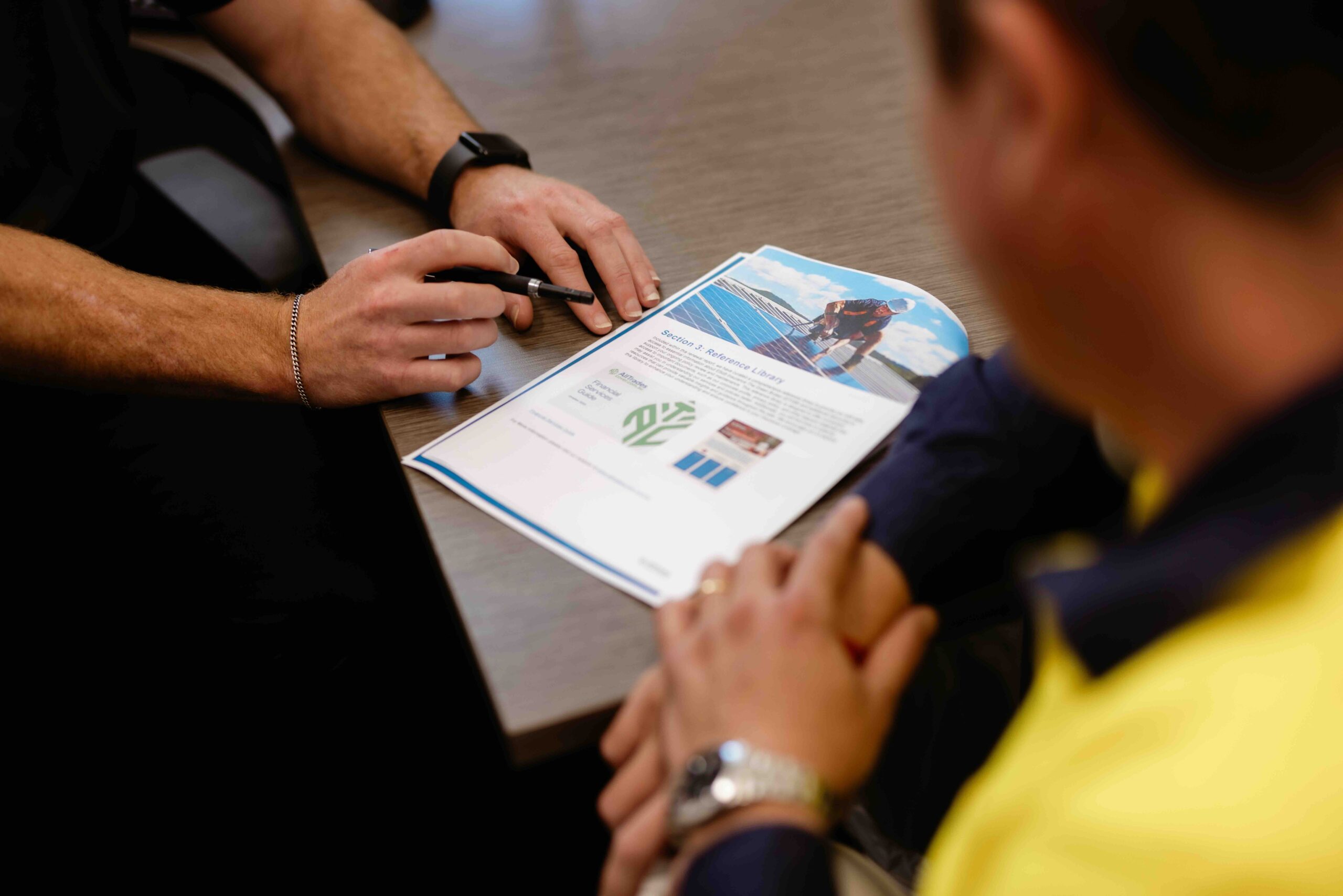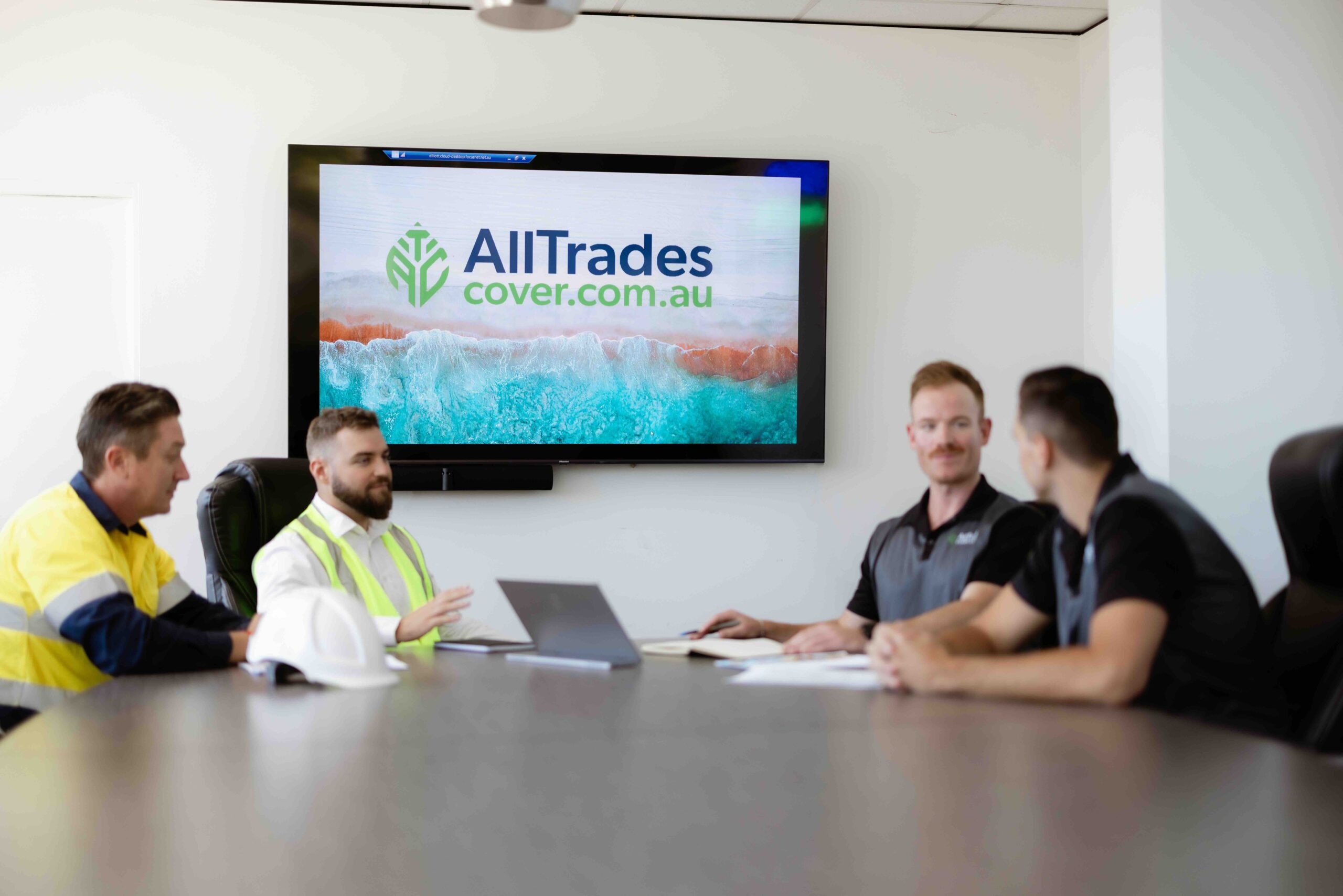Instant, Affordable Solar Panel Installer Insurance Quotes

Solar panel installation involves managing various risks, from property damage to workplace accidents. We’re here to make that journey safe and secure with comprehensive, affordable solar panel installer insurance.
As one of Australia’s leading trade insurers with over 20 years of experience, we offer tailored insurance solutions for solar installers.
With many standard electrician policies now excluding solar work, our expert team ensures you get the coverage you need to focus on your craft with peace of mind.

Instant Solar Panel Installer Insurance Quotes

Trusted by Aussie Tradies for Over 10 Years








Proudly ranked in the Insurance Business Top Brokerages every year from 2013 – 2024.
Why Choose
All Trades Cover
For over 30 years, All Trades Cover has been the trusted choice for Australia-wide cover for tradies and builders. We understand your risks, industry regulations, and coverage needs – helping you secure the right policy.
Quick & Competitive Quotes
Compare policies, get a fast quote, and receive your Certificate of Insurance.
Trusted Insurance Providers
We partner with Australia’s leading insurance providers to deliver comprehensive, trade-specific cover at the best possible price.
Customised Coverage for Your Trade
From solo contractors to large-scale construction firms, earthmoving operators to plant hire businesses, our policies are built to cover the real risks you face on the job.
Ongoing Support & Claims Assistance
Our brokers assist in coordinating your policy and can guide you through the claims process with your insurer.
Our Happy Customers

What Types of Insurance Do Solar Panel Installers Need?

Solar panel installer insurance should cover multiple bases, including:
- Public liability insurance: Covers third-party property damage or personal injury claims from your business activities. Includes legal and compensation costs.
- Tool insurance: Protects against loss, theft, or damage of business tools and equipment, covering replacement or repair costs.
- Personal accident insurance: Covers you for loss of income if you were unable to work as a result of an injury or illness, regardless of whether or not you sustain injury or develop an illness at work or in your personal time
- Professional indemnity insurance: Protects against claims of negligent advice or services, covering legal fees and compensation.
- Commercial vehicle insurance: Provides coverage for business vehicles against accidents, theft, and liability, including repair and replacement.
- Workers compensation insurance: Covers medical expenses, lost wages, and rehabilitation for employees injured or ill from work.

Why Choose Us?

At All Trades Cover, we specialise in understanding the unique risks and needs of your industry and offer tailored insurance advice for hundreds of trades across Australia.
Our experienced brokers identify your trade’s risk exposures to ensure you’re fully protected. We simplify the insurance process, from initial setup to handling claims with minimal hassle for you.
Our team is always on hand for support and questions, and aim to make getting your insurance straightforward and stress-free for you.


Frequently Asked Questions
What does public liability insurance typically cover?
What does tools insurance cover?
What does professional indemnity insurance cover?
What does personal accident insurance cover?
What does commercial vehicle insurance cover?
What does workers compensation cover?
What factors influence the cost of insurance?
How often should you review your insurance coverage?
What is our privacy policy?

Get Expert Advice & The Right Cover Today
Have questions or need help finding the right cover? Our expert brokers are here to assist. Get in touch today and secure the protection your trade business needs—quickly and hassle-free.